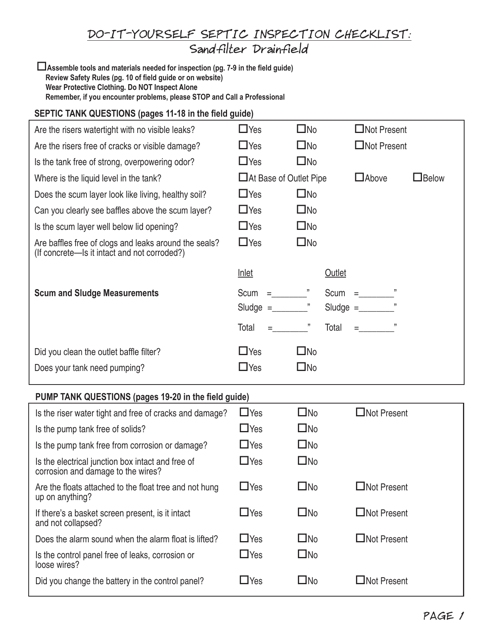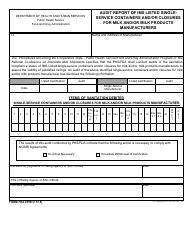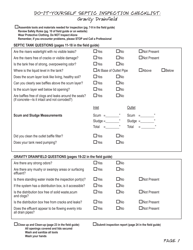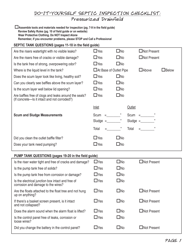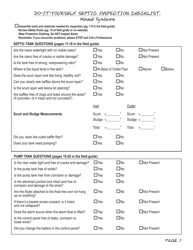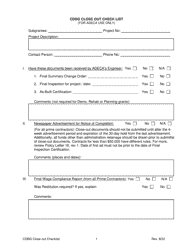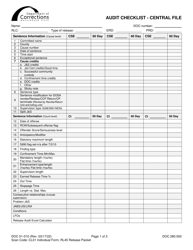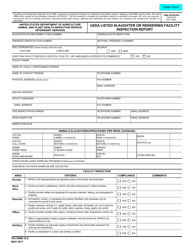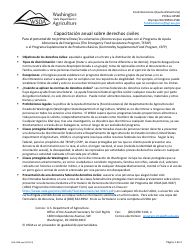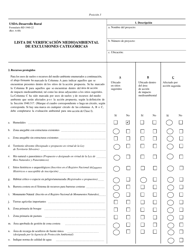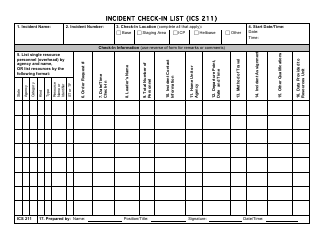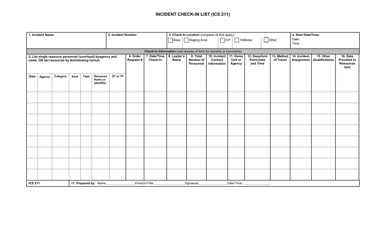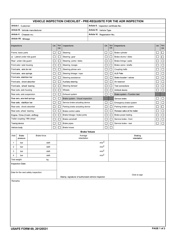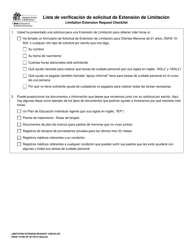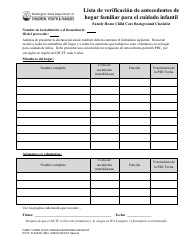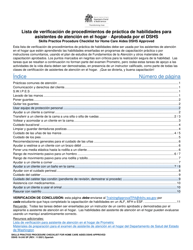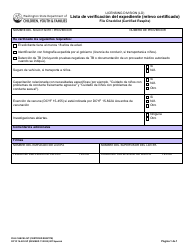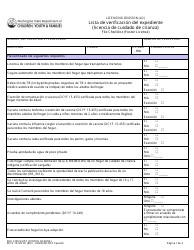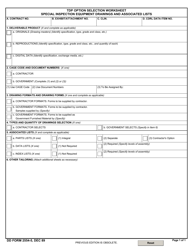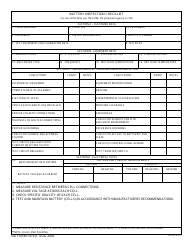Do-It-Yourself Septic Inspection Checklist - Sandfilter Drainfield - Washington
Do-It-Yourself Septic Inspection Checklist - Sandfilter Drainfield is a legal document that was released by the Washington State Department of Health - a government authority operating within Washington.
FAQ
Q: What is a sand filter drainfield?
A: A sand filter drainfield is a type of septic system designed to treat wastewater using layers of sand and gravel.
Q: Why is a septic inspection important?
A: A septic inspection is important to ensure that your septic system is functioning properly and to identify any potential issues before they become major problems.
Q: What should be included in a septic inspection checklist?
A: A septic inspection checklist should include checking the condition of the tank, inspecting the drainfield, checking for signs of leaks or backups, and evaluating the overall performance of the system.
Q: How often should a septic system be inspected?
A: A septic system should be inspected at least once every three years, and more frequently if recommended by a professional.
Q: What are some signs that a septic system may be failing?
A: Signs of a failing septic system include sewage backups, slow draining sinks or toilets, foul odors, and saturated or mushy soil around the drainfield.
Q: Can I perform a septic inspection myself?
A: Yes, you can perform a septic inspection yourself using a checklist and guidance from resources such as this document. However, it is also recommended to have a professional inspection done periodically.
Q: Are there any specific regulations for septic systems in Washington?
A: Yes, Washington has specific regulations for septic systems, and it is important to comply with these regulations to ensure the health and safety of your property and the environment.
Q: What should I do if I suspect a problem with my septic system?
A: If you suspect a problem with your septic system, you should contact a professional septic inspector or a licensed septic system contractor to evaluate and address the issue.
Form Details:
- The latest edition currently provided by the Washington State Department of Health;
- Ready to use and print;
- Easy to customize;
- Compatible with most PDF-viewing applications;
- Fill out the form in our online filing application.
Download a printable version of the form by clicking the link below or browse more documents and templates provided by the Washington State Department of Health.
